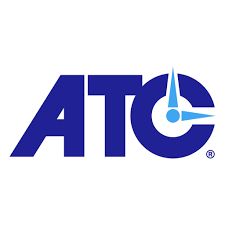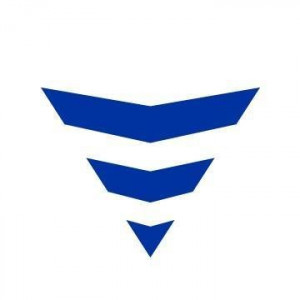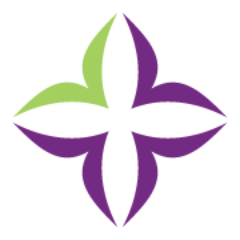Summary of position:
Health Triage (HT) nurses receive and triage patient calls to prioritize healthcare visits. They facilitate patient production and work in collaboration with physicians to provide patients with care, education, and support. HT nurses assess patient health problems and needs, develop and implement nursing care plans, maintain medical records, and administer nursing care to ill, injured, convalescent, or disabled patients. HT nurses may advise patients on health maintenance and disease prevention or provide case management. Coordinating and assigning duties to other health care personnel, such as licensed practical nurses, nursing aides, and patient care associates.
Responsibilities include:
- Provide direct patient care as necessary.
- Coordinate the nursing care provided for patients within a given unit by:
- Assigning appropriate nursing staff for patient care activities such as admissions, sick calls, treatments, medications, unit rounds, follow-ups, etc.
- Assisting the ADON and nurse schedulers with staffing needs and communicating staffing concerns immediately with the ADON.
- Utilizing therapeutic communication skills and effective interviewing techniques to elicit pertinent historical information and to make appropriate referrals as required.
- Screening patients with mental health problems immediately and making appropriate referrals as required.
- Making rounds to patient care areas to assess, plan, implement, document, and evaluate unit nursing care delivery.
- Providing guidance and assistance to nursing personnel in the delivery of patient care.
- Ensuring continuity of care on other shifts through written and/or verbal communication.
- Communicating special care needs to the appropriate member of Leadership.
- Collaborate with the ADON to orient new staff. Evaluate the new nurse on an ongoing basis, write a formal evaluation at the end of the probation period, and make recommendations to the ADON.
- Monitor, record, and report patients’ medical information, vital signs, symptoms, and changes in condition and escalate care as appropriate according to established policies, procedures, and standards of care.
- Comply with procedures, regulations, and rules in maintaining medical records.
- Modify patient treatment plans as indicated by patients’ responses and conditions.
- Monitor all aspects of patient care, including diet and physical activity.
- Perform administrative and managerial functions, such as taking responsibility for a unit's staff, and planning.
- Direct and supervise less-skilled nursing/health care personnel, or supervise a particular unit on one shift.
- Prepare patients for, and assist with, examinations and treatments.
- Observe nurses and patients to ensure that proper nursing care is provided.
- Instruct individuals, and other groups on topics such as health education, disease prevention, and childbirth, and develop health improvement programs.
- Prepare rooms, sterile instruments, equipment, and supplies, and ensure that stock of supplies is maintained.
- Administer local, inhalation, intravenous, and other medications as ordered.
- Provide health care, first aid, immunizations, and assistance in convalescence and rehabilitation.
- Conduct specified laboratory tests.
- Direct and coordinate infection control services, advising and consulting with specified personnel about necessary precautions.
- Provide or arrange for training/instruction of auxiliary personnel.
- Refer patients to specialized health resources or community agencies.
- Consult with institutions or associations regarding relevant issues and concerns.
- Assess patient needs and provide clear education on the management of their care.
- Engage in nursing research.
EMERGENCY RESPONSE
- Responding to/addressing medical emergencies, such as falls, heart attacks, strokes, and burns as well as recovering post-operative patients
- Evaluate a patient’s condition in order to determine the right course of treatment
- When clinically indicated, provide care, such as CPR, AED, prevent shock, control severe bleeding, prevent spinal damage, etc.
- Monitor patient’s condition and keep it stable while en route to the clinic
- Aid in the preparation of the transfer of patients by Urgicare and/or EMS to the emergency units or hospitals
- Document medical treatment given to the patient
- Keep the equipment clean after use; check and replace damaged and used supplies.
- Collaborate with pharmacy to replenish supplies.
PHYSICAL DEMANDS
- Ability to lift fifty (50) pounds.
- Moving, lifting, or transferring patients may involve lifting up to 100 pounds.
- Ability to stand for extended periods.
- Fine motor skills.
- Visual acuity.
Department Preferences:
- Licensed Registered Professional Nurse currently registered to practice in New York State.
- A baccalaureate degree in nursing is preferred.
- Demonstrated clinical competence and leadership traits (e.g. decision-making ability and skills in problem-solving, communication, priority-setting, and interpersonal relationships) with a minimum of one year of clinical nursing practice as a medical/surgical nurse, preferably in an acute care setting preferred.
- Demonstrated commitment to continuing professional development through attendance at continuing education programs and participation in professional/organizational committees/councils
- Basic Life Support Certification is required; ACLS is preferred.
- Two years of current Correctional Health and/or Med-Surgical and/or Behavioral Health experience.
Qualification Requirements:
- A valid New York State license and current registration to practice as a Registered Professional Nurse in New York State; and
- Holds, or obtains through facility orientation, a valid and current certification in Basic Life Support (BLS) through the American Heart Association (AHA).
Special Note:
For assignments in Post-Acute Care ONLY, individuals meeting the following criteria may also be considered for appointment: Graduation from a nursing education program registered by the New York State Education Department (NYSED) as licensure qualifying for Registered Professional Nurse (RN) and has applied for licensure as an RN. These unlicensed individuals may be employed to practice under the immediate and personal supervision of a NYS licensed, currently registered, RN for up to 90 days immediately following graduation pending receipt of a limited permit, which selected candidates must apply for and receive within the same 90-day period. Once a limited permit is received, individuals can practice nursing, under the immediate and personal supervision of a NYS licensed, currently registered, RN at a NYC Health + Hospitals health care setting for up to one (1) year from the date of issuance of the limited permit. In addition, must hold or obtain through facility orientation, a valid and current certification in Basic Life Support (BLS) through the American Heart Association (AHA).









